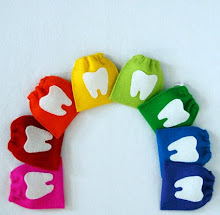What Are Space Maintainers?
Space maintainers are appliances made of metal that are custom fit to your child’s mouth. They are small and unobtrusive in appearance. Most children easily adjust to them after the first few days.
Why Do Children Lose Their Baby Teeth? A baby tooth usually stays in place until a permanent tooth underneath pushes it out and takes its place. Unfortunately, some children lose a baby tooth too soon. A tooth might be knocked out accidentally or removed because of dental disease. When a tooth is lost too early, Dr. Oliver may recommend a space maintainer to prevent future space loss and dental problems.
Why All The Fuss? Baby Teeth Fall Out Eventually On Their Own!
Baby teeth are important to your child’s present and future dental health. They encourage normal development of the jaw bones and muscles. They save space for the permanent teeth and guide them into position. Remember: Some baby teeth are not replaced until a child is 12 or 14 years old.
How Does A Lost Baby Tooth Cause Problems For Permanent Teeth?
If a baby tooth is lost too soon, the teeth beside it may tilt or drift into the empty space. Teeth in the other jaw may move up or down to fill the gap. When adjacent teeth shift into the empty space, they create a lack of space in the jaw for the permanent teeth. Therefore, permanent teeth are crowded and come in crooked. If left untreated, the condition may require extensive orthodontic treatment.
How Does A Space Maintainer Help? Space maintainers hold open the empty space left by a lost tooth. They steady the remaining teeth, preventing movement until the permanent tooth takes its natural position in the jaw. It is more affordable – and easier on your child – to keep teeth in normal positions with a space maintainer than to move them back in place with orthodontic treatment.
What Special Care Do Space Maintainers Need?
First, avoid sticky sweets or chewing gum. Second, do not tug or push on the space maintainer with your fingers or tongue. Third, keep it clean with conscientious brushing and flossing. Fourth, continue regular dental visits.
The American Academy Of Pediatric Dentistry (AAPD)
Founded in 1947, the AAPD is a not-for-profit membership association representing the specialty of pediatric dentistry. The AAPD’s 7,800 members are primary oral health care providers who offer comprehensive specialty treatment for millions of infants, children, adolescents, and individuals with special health care needs. The AAPD also represents general dentists who treat a significant number of children in their practices. As advocates for children’s oral health, the AAPD develops and promotes evidence-based policies and guidelines, fosters Research, contributes to scholarly work concerning pediatric oral health, and educates health care providers, policymakers, and the public on ways to improve children’s oral health. For further information, please visit the AAPD Web site at www.aapd.org.
Space maintainers are appliances made of metal that are custom fit to your child’s mouth. They are small and unobtrusive in appearance. Most children easily adjust to them after the first few days.
Why Do Children Lose Their Baby Teeth? A baby tooth usually stays in place until a permanent tooth underneath pushes it out and takes its place. Unfortunately, some children lose a baby tooth too soon. A tooth might be knocked out accidentally or removed because of dental disease. When a tooth is lost too early, Dr. Oliver may recommend a space maintainer to prevent future space loss and dental problems.
Why All The Fuss? Baby Teeth Fall Out Eventually On Their Own!
Baby teeth are important to your child’s present and future dental health. They encourage normal development of the jaw bones and muscles. They save space for the permanent teeth and guide them into position. Remember: Some baby teeth are not replaced until a child is 12 or 14 years old.
How Does A Lost Baby Tooth Cause Problems For Permanent Teeth?
If a baby tooth is lost too soon, the teeth beside it may tilt or drift into the empty space. Teeth in the other jaw may move up or down to fill the gap. When adjacent teeth shift into the empty space, they create a lack of space in the jaw for the permanent teeth. Therefore, permanent teeth are crowded and come in crooked. If left untreated, the condition may require extensive orthodontic treatment.
How Does A Space Maintainer Help? Space maintainers hold open the empty space left by a lost tooth. They steady the remaining teeth, preventing movement until the permanent tooth takes its natural position in the jaw. It is more affordable – and easier on your child – to keep teeth in normal positions with a space maintainer than to move them back in place with orthodontic treatment.
What Special Care Do Space Maintainers Need?
First, avoid sticky sweets or chewing gum. Second, do not tug or push on the space maintainer with your fingers or tongue. Third, keep it clean with conscientious brushing and flossing. Fourth, continue regular dental visits.
The American Academy Of Pediatric Dentistry (AAPD)
Founded in 1947, the AAPD is a not-for-profit membership association representing the specialty of pediatric dentistry. The AAPD’s 7,800 members are primary oral health care providers who offer comprehensive specialty treatment for millions of infants, children, adolescents, and individuals with special health care needs. The AAPD also represents general dentists who treat a significant number of children in their practices. As advocates for children’s oral health, the AAPD develops and promotes evidence-based policies and guidelines, fosters Research, contributes to scholarly work concerning pediatric oral health, and educates health care providers, policymakers, and the public on ways to improve children’s oral health. For further information, please visit the AAPD Web site at www.aapd.org.
